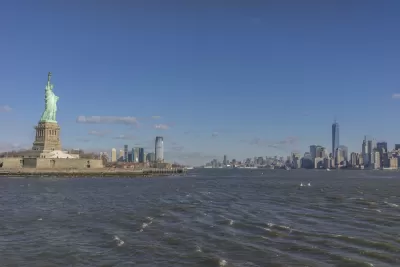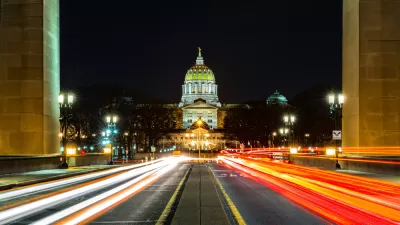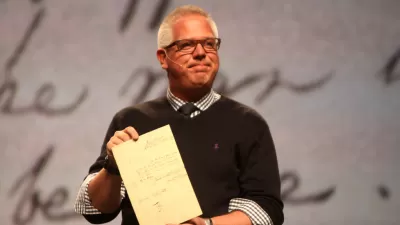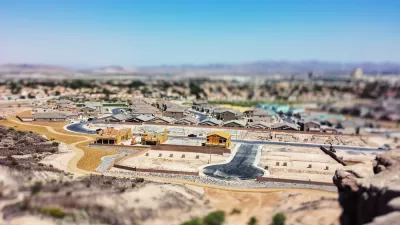A contentious debate broke out this week, after a pundit proposed breaking up the consolidation of economic and political power of the country's liberal cities.

New York Times pundit Ross Douthat went and did something controversial over the weekend and provided a dissenting take on the narrative of urban areas as the economic powerhouses and diversity successes of the United States.
So has the heyday of these meritocratic agglomerations actually made America greater? I think not. In the age of the liberal city — dating, one might argue, to the urban recovery of the 1990s — economic growth has been slack, political dysfunction worse, and technological progress slow outside the online sector.
After stating his premise, Douthat goes on to propose an idea he admits is "Implausible, perhaps even ridiculous":
We should treat liberal cities the way liberals treat corporate monopolies — not as growth-enhancing assets, but as trusts that concentrate wealth and power and conspire against the public good. And instead of trying to make them a little more egalitarian with looser zoning rules and more affordable housing, we should make like Teddy Roosevelt and try to break them up.
Douthat provides more detail on what that deconsolidation would like that, and sparked a lot of social media discussion in the process.
One response to Douthat's proposal is especially worth noting, that of City Observatory's Joe Cortright, who writes that Douthat's proposal "one of the most spectacularly wrong-headed policy prescriptions for economic development that has ever been offered."
According to Cortright's well-evidenced response, breaking up cities would not spread the wealth, but "actually destroy value and make the nation worse off."
FULL STORY: Break Up the Liberal City

Alabama: Trump Terminates Settlements for Black Communities Harmed By Raw Sewage
Trump deemed the landmark civil rights agreement “illegal DEI and environmental justice policy.”

Planetizen Federal Action Tracker
A weekly monitor of how Trump’s orders and actions are impacting planners and planning in America.

The 120 Year Old Tiny Home Villages That Sheltered San Francisco’s Earthquake Refugees
More than a century ago, San Francisco mobilized to house thousands of residents displaced by the 1906 earthquake. Could their strategy offer a model for the present?

Ken Jennings Launches Transit Web Series
The Jeopardy champ wants you to ride public transit.

BLM To Rescind Public Lands Rule
The change will downgrade conservation, once again putting federal land at risk for mining and other extractive uses.

Indy Neighborhood Group Builds Temporary Multi-Use Path
Community members, aided in part by funding from the city, repurposed a vehicle lane to create a protected bike and pedestrian path for the summer season.
Urban Design for Planners 1: Software Tools
This six-course series explores essential urban design concepts using open source software and equips planners with the tools they need to participate fully in the urban design process.
Planning for Universal Design
Learn the tools for implementing Universal Design in planning regulations.
Clanton & Associates, Inc.
Jessamine County Fiscal Court
Institute for Housing and Urban Development Studies (IHS)
City of Grandview
Harvard GSD Executive Education
Toledo-Lucas County Plan Commissions
Salt Lake City
NYU Wagner Graduate School of Public Service





























